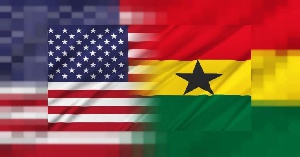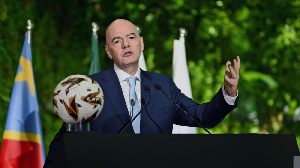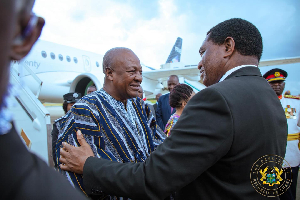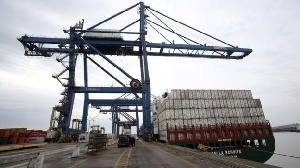As Americans go to the polls today to decide who will be their executive president for the next four years, lots of Ghanaian will be following the voting as closely as if had been for the election of their own leaders.
This is for good reason; not only is the United States a major business and economic development partner of Ghana’s but as the largest economy in the world, its influence on global economic trends and trajectories is truly huge.
However, just as with their domestic elections, Ghanaians are being driven more by sentiments than by hard data and facts in making their choice as to whom they want to win today’s United States Presidential election.
Admittedly though in some ways their overwhelming emotional choice is the same as the choice dictated by economic self- interest – but not in all the ways.
Most Ghanaians have sided with Joe Biden, the former Vice President of the United States during the Barrack Obama administration. The reasons are altogether expected.
Biden was the vice presidential choice of the first African American to occupy the Oval Office and indeed, African American’s in general are solidly behind him led of course by former President Obama himself. On the other side of the divide is incumbent President Donald Trump, who has been painted as a racist by America’s political class, a colouring which he helped with himself when he described African countries as “shit hole” countries in 2017.
Ghanaian’s natural inclination towards Biden is intensified by the goodwill shown towards Africa – and Ghana in particular – by the Obama administration, which reflected in several economic assistance programmes and in Obama’s choice of Ghana as one of the first places he visited upon assumption of office.
Conversely, their personal dislike of President Trump has been intensified by the visa restrictions thrown on Ghana in February 2018, in America’s reaction to the African country’s disputing the citizenship of some alleged Ghanaians who were being deported at the height of the Trump administration’s clamp down o0n illegal immigrants.
To be sure, Trump’s often hostile rheotic against Africans, Ghanaians inclusive have been supported by actual unfriendly public policy action. For instance, over the past couple of years, American assistance to Ghana channeled through the State Department and the United States Agency for International Development has been cut considerably; from US$143 million in 2018 to an approved allocation of US$74.0 million in 2019 and just US$62.8 million in 2020.
Similarly, special economic assistance programmes by the US for Ghana have suffered budgetary allocation cuts to. Thus, programmes such as the Young African Leaders Initiative, Power Africa, and the likes have been down-scaled.
Actually, the budgetary cuts could have been deeper if not for bipartisan support for US economic aid to Africa on both Capitol Hill, in the form of congressional support and at the State Department where career diplomats have stood up for African beneficiaries of American largesse.
However that support has ensured that no economic assistance programmes inherited by the Trump administration have been thrown out altogether.
But using this to paint a picture of friendliness versus hostility among Ghanaians with regards to who they should support would not only be simplistic; it might actually be outright wrong.
The true situation is that The Trump administration has adopted a deliberate strategy of replacing aid with trade and investment opportunities between the two countries. Most instructively, it has replaced the Overseas Private Investment Corporation with the (International) Development Finance Corporation, a state institution with twice the size of OPIC’s upper limit on investments abroad, this having been raised from the erstwhile US$29 million to US$60 million. Instructively Africa remains the biggest beneficiary of such investments.
This is part of a wider initiative by the Trump administration which it calls Prosper Africa which aims to significantly grow trade and investment flows between the two continents and Ghana’s failure to benefit from this initiative cannot be blamed on the US alone; Ghanaian exporters have been inconsistent in their attempts at winning American markets, peaking at US$779 million in 2011 but falling to US$574 million by 2018, a year in which total two way trade between the two countries was US$1.3 billion, but leaving Ghana with a US$195 million trade deficit.
When accused of replacing direly needed development aid with trade and investment flows between two very unequal partners – which could cost Ghana dearly – US officials point out that this is in line with the country’s own national vision of Ghana beyond aid.
Interestingly, the Ghana beyond aid mantra has reportedly resonated among Trump administration officials whose leaders loudly advocates that every country should – just like him –prioritize themselves rather than any bilateral or multilateral goals.
None of this though is likely to make Donald Trump nearly as intensely supported in Ghana as Joe Biden on US election day. Biden wants an America that resumes its leadership of global multilateral and this means aid rising again alongside increasing trade. But then again, Ghanaians do not have a vote anyway.
Business News of Tuesday, 3 November 2020
Source: goldstreetbusiness.com
How the US elections will affect economic policy towards Ghana
Opinions












